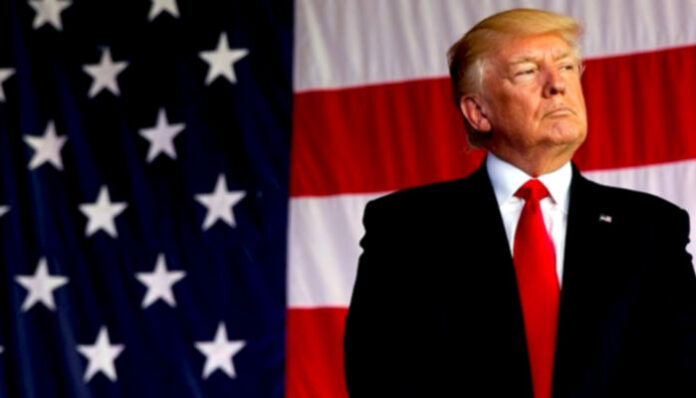Federal Court Blocks Majority of Trump Tariffs and Import Tax Plans
In a major decision made on Wednesday, a U.S. federal court stopped most of Donald Trump’s planned import taxes. known as Trump tariffs. The judges found that he tried to use powers that go beyond what a president is legally allowed to do when dealing with trade. This ruling puts a serious limit on how far presidential authority can go in setting global tariffs.
A recent court decision has put a major obstacle in the way of Donald Trump’s trade strategy. He aimed to push other countries into new trade talks by adding heavy taxes on imported goods. Now, this legal defeat makes it much harder for him to follow through on that plan.
Trade tensions sparked by Trump tariffs have created uncertainty in financial markets. By putting extra taxes on goods from certain countries, he wants to punish those that sell more to the U.S. than they buy back. This ongoing strategy has made global trade relations more complicated.
The president warned that America was facing serious challenges from unfair trade and drug smuggling. He argued that these issues created an emergency situation, which made it necessary to impose wide-ranging tariffs on imports. including the Trump tariffs.
Judges from the Court of International Trade have put most of the president’s import limits on hold, stopping actions taken since January. This move delays the government’s plans to tighten control over foreign goods. including several of the Trump tariffs.
Frustration grew inside the White House after the ruling, with officials saying Trump’s trade actions, like the Trump tariffs, shouldn’t be judged by people who weren’t elected. They believe the president alone should decide how to handle such matters.
Restoring the country’s strength is the main focus, said Kush Desai, Trump’s spokesperson. He also shared that the administration plans to use all available presidential powers to handle the crisis and keep America’s interests first. defending the use of Trump tariffs.
Quick to respond, Trump’s legal team acted on Wednesday to contest the recent court ruling. Their appeal aims to overturn the decision and keep their plans moving forward.
Reacting sharply on social media, Stephen Miller, a close advisor to Trump, condemned the court’s decision. He described it as a ‘judicial takeover’ that had gone beyond reasonable limits.
In early April, Trump tariffs introduced new taxes on imports affecting many nations. While most faced a 10 percent fee, some, like China and the European Union, were hit with even higher rates.
In addition, the court blocked the extra taxes Trump had set on imports from Canada, Mexico, and China, which he imposed by using emergency powers. This decision reverses those special trade measures.
Tensions eased somewhat when the president decided to hold off on the higher tariffs for three months. During this time, other fees were also paused as talks continued with various countries and trade alliances.
On Thursday, South Korea’s central bank lowered its main interest rate and reduced its growth expectations because of the uncertainty caused by Trump’s tariff threats.
An Unseen Danger Behind Trump Tariffs
In two cases, the federal trade court addressed claims from businesses and a group of states. They argued that the president had crossed the line by ignoring Congress’s control over spending.
At the heart of the court’s review is a 1977 law called the International Emergency Economic Powers Act. The three-judge panel questioned whether this law lets the president impose unlimited import taxes on goods from almost all countries worldwide.
Judges decided that the IEEPA doesn’t allow the president to have unlimited control, so they stopped the tariffs put in place under this law.
According to court records, the judges who deal with trade cases ruled that the IEEPA cannot be understood as giving the president unlimited rights to impose tariffs, because that would break the Constitution.
When facing an emergency, the president can act under the IEEPA to protect the country. The court explained that this law is meant to deal with unusual and serious threats using economic measures.
Within ten days, the White House must complete all formal steps to put a halt to the tariffs, the court decided.
Speaking out about the court’s decision, Gregory W. Meeks, the leading Democrat on the House Foreign Affairs Committee, called the tariffs an improper use of presidential power. He said the ruling sends a strong message that such actions aren’t allowed.
Addressing the issue, he criticized Trump for falsely declaring a national emergency to justify his global trade actions. He called this a misuse of the IEEPA that was both unfair and against the law.
They claimed that the president has wide control over trade decisions and that judges shouldn’t interfere much. This view upset many, who felt the president was reaching beyond his limits and ignoring the roles of Congress and the courts.
Early agreements made with countries like the UK and China, one of the largest economies globally, are seen as positive steps forward.
Some specialists warn that the new taxes on goods from other countries will likely make everyday items more expensive for Americans. This could cause prices to rise more quickly and might force the main U.S. bank to keep interest rates high for a longer period. This situation could also affect the money and stock markets in a negative way.
For authentic news and the latest updates, stay connected with: DumdaarPoint.com

